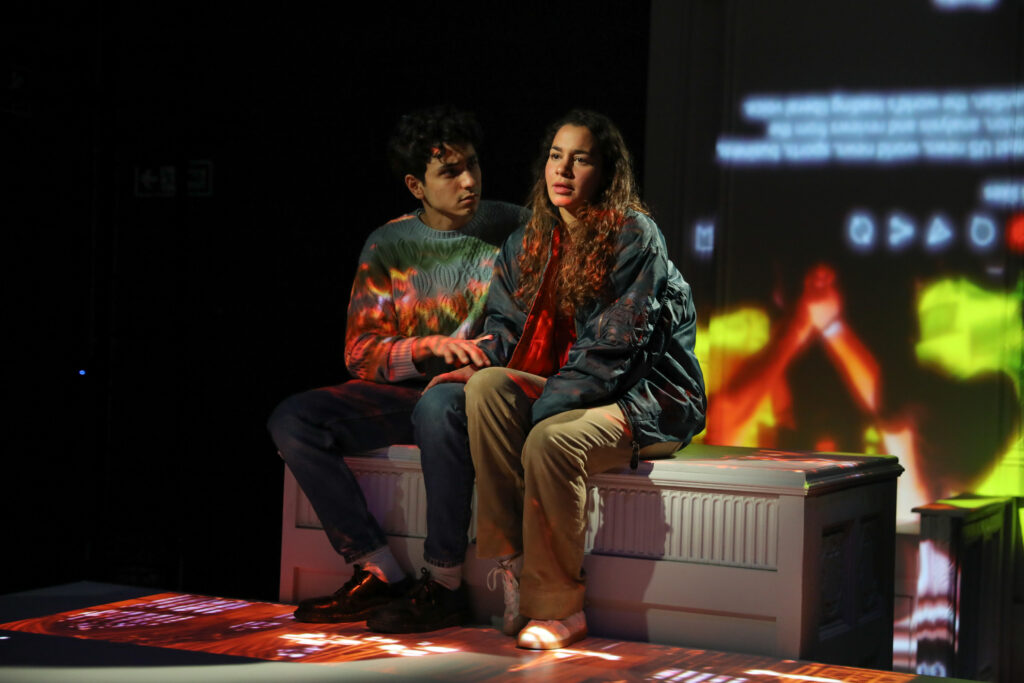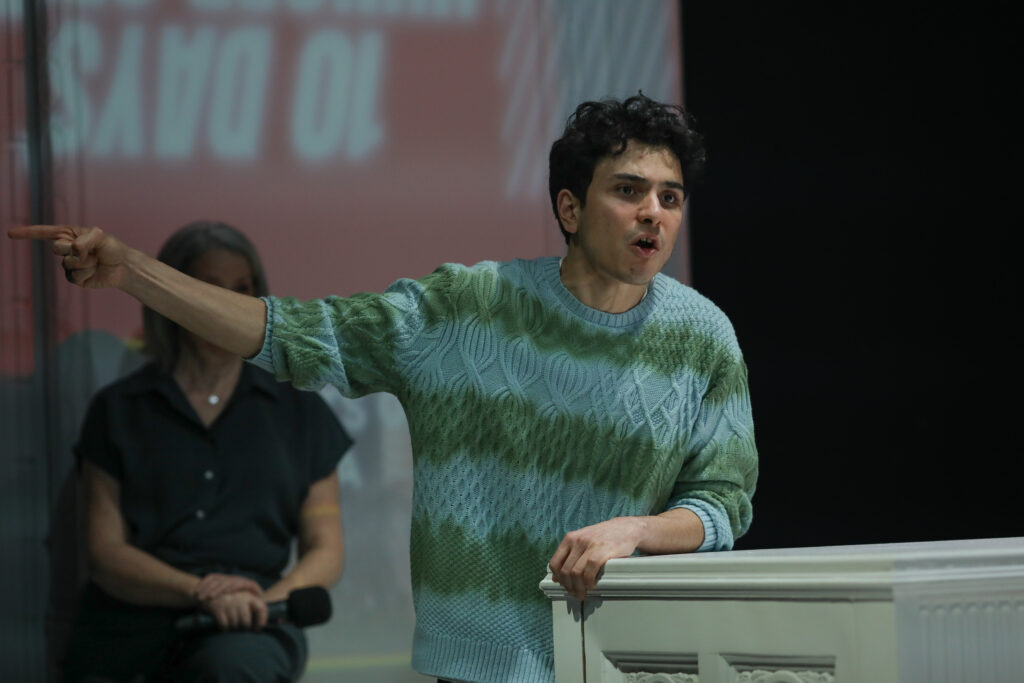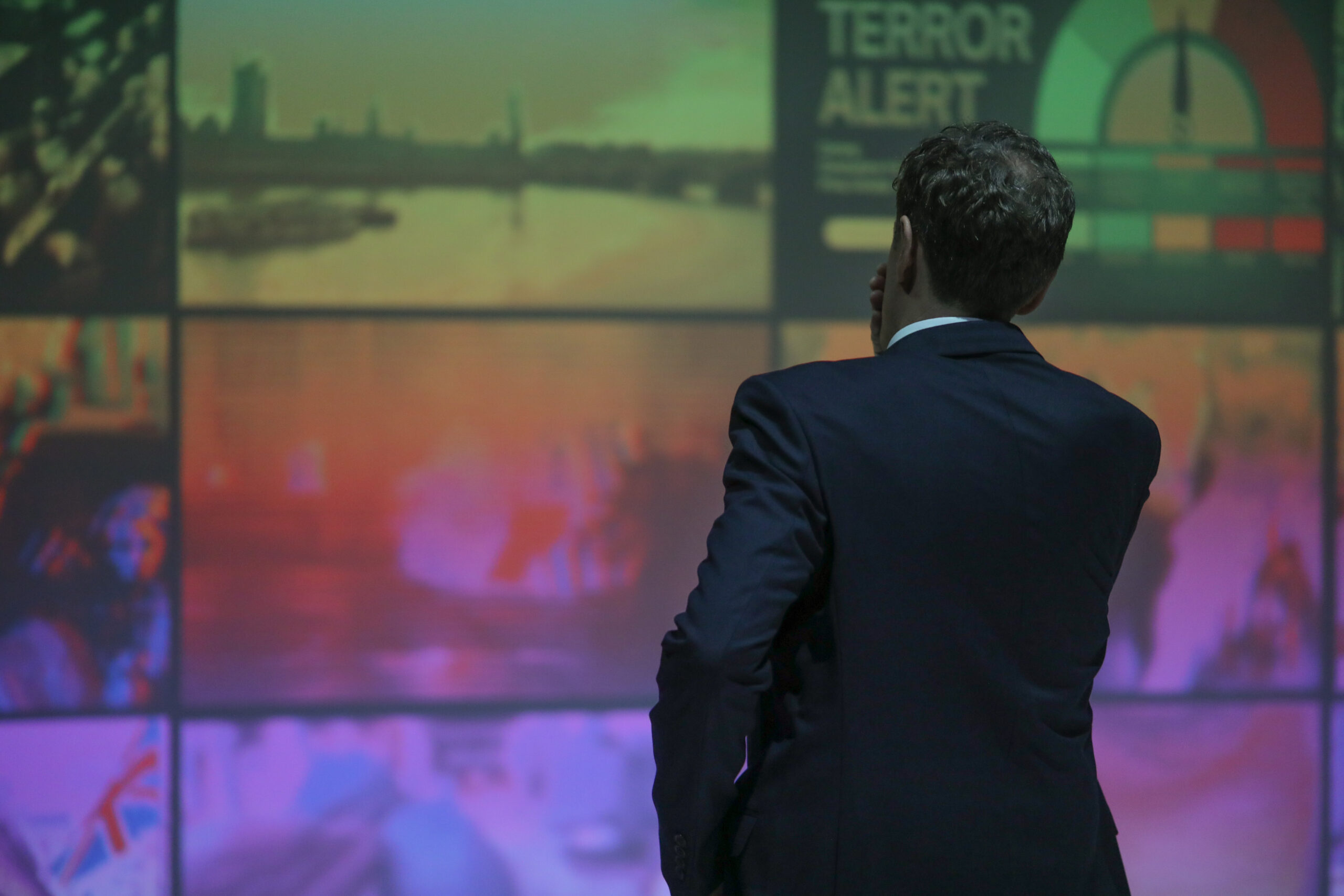Antigone [on strike] – Park Theatre, London
Alexander Raptotasios’s new adaptation Antigone [on strike] brings this classic tale forward into the age of social media, globalised geopolitics, and real time democracy.

Antigone [on strike]
As I’m sure I’ve said on the blog before, the classics are classics for a reason. It’s astounding the way that certain stories from the ancient world continue to reveal truths about ourselves in the present. The story of Antigone is one we’ve seen before in a few guises. The daughter of Oedipus, things were never going to be straightforward for her. Sophocles told her story and that of her family in the three Theban Plays of the 5th century BCE, including the one that bears Antigone’s name. It tells of a young woman determined to do right by her brother Polynices, no matter the cost to herself, by defying her uncle Creon’s order to neither mourn nor bury him.
In Alexander Raptotasios’s new work at North London’s Park Theatre, we have a retelling that explores timeless themes and contemporary politics. And despite the introduction of modern geopolitics, terrorist organisations and Islamophobia, it’s a pretty direct adaptation. The plot, subplots and themes lend themselves very well to the transposed situation. There’s the tension between the powerful (Phil Cheadle as Home Secretary Jonathan Creighton) and powerless (Hiba Medina as Antiya, whose sister Esmeh was groomed to join a terrorist organisation at 14 and is now stuck in a refugee camp) over questions of justice and what is right. A battle of wills that may go to the death. The question of whether an individual has the right to infringe society’s rules to exercise a higher duty. Warnings that can be heeded or not. Fate vs. personal agency, which is one of the most timeless themes of them all.
The star-crossed pairing of a hunger striker and the Home Secretary’s son (Ali Hadji-Heshmati as Eammon) may seem a little more of a stretch than betrothals in a Theban palace, but never mind. It allows for that Home Secretary’s hubris to hit him where it hurts. And, again, mirrors Sophocles’ original. Although I have to say I was a little confused about the all-seeing, AI-like character of Ty (Sorcha Brooks) until I realised the link to Sophocles’ Tiresius. Prophet turned pollster and political advisor: again a neat contemporary reworking.
Antigone/Antiya’s absent sibling is also a lot more active than usual. While Polynices is a body awaiting burial, Esmeh (played virtually by Hanna Khogali) is condemned to stateless exile. She can thus participate in the debate herself, albeit remotely (video content by Vittoria Belli). This introduces an interesting echo of the question of state laws vs. personal duty, and the complexities of right and wrong. Just as in the real-life cases which are this work’s inspiration, most directly that of Shemima Begum, there isn’t a clear-cut answer.

Interactive and Democratic, But To What End?
Another contemporary twist is the introduction of audience voting buttons. We each collect a small device before the play begins, with options to vote at various points. The voting is interesting. I think it’s inevitable that the audience for something like this is at least a little self-selecting. Would-be applicants for the latest controversial show on immigration, for instance, probably aren’t going to pick this for a night out. But it’s interesting to see how one’s neighbours differ in opinion from oneself. And to think about how opinions formed and shared so casually can have a great impact. It’s audience interaction that is both non-threatening for individual audience members yet high stakes for the plot. I wonder how much the play does actually change depending on voting outcomes?
There are downsides to this reliance on technology, however. Firstly there are some technical issues. The actors must contend with a too-loud projector and a too-quiet phone, as well as managing their timing against pre-recorded sequences. Flashing excerpts from online news and social media are a distraction. This is the point, in the sense that Antigone [on strike] aims to draw attention to the information saturation which simultaneously leaves us unqualified to hold the opinions we so often voice. But fitting the story and the technology into a relatively short 90 minutes leaves little room to develop the idea further. I think we’re all aware that we are constantly surrounded by clamouring voices and opinions. And that attention-grabbing news and social media formats can never unpack the complexities of the world around us. But what do we do with that information? What comes next? Questions which remain unanswered.
All of the different factors the actors contend with perhaps do impact the acting slightly, as well. As does the set design (Marco Turcich), with the audience on two sides and a raised white platform thrusting the length of the Park Theatre’s smaller venue. It’s visually impressive and a great backdrop to the AV offerings. But I sometimes struggled to hear dialogue or to see voting questions when actors’ backs were turned to me. While at other times I felt the actors were focused on branching dialogue rather than lost in their characters. But all of the four-strong cast have their moments, particularly in the more passionate speeches. I think there’s a lot of promise in this work, and I love a production which takes risks in order to do something different. I would love to see this one develop further.
Salterton Arts Review’s rating: 3/5
Antigone [on strike] on until 22 February 2025. More info and tickets here.
Trending
If you see this after your page is loaded completely, leafletJS files are missing.

